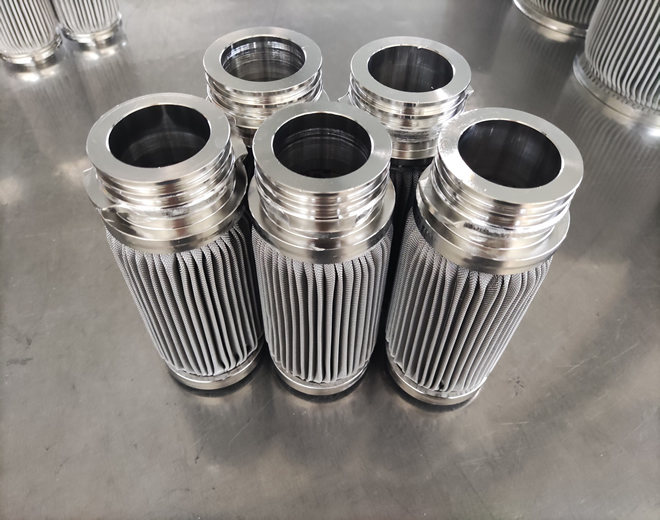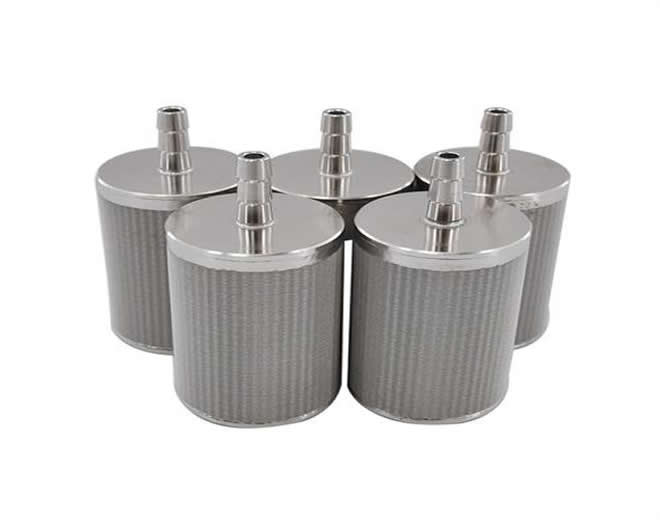A methanol filter is an industrial filtration device designed specifically for methanol media, used to remove rust, particulate contaminants, mechanical impurities, and trace solid deposits. Its core function is to improve methanol purity, protect system equipment, and enhance operational stability. Therefore, methanol filters play an irreplaceable role in the chemical, energy, new materials, and fine chemical industries. They are a key safety component in methanol storage, transportation, and reaction processes.
During methanol transportation, storage, and pipeline circulation, contaminants such as rust, welding slag, and dust easily mix into the medium. Filters with different micron ratings can effectively capture these impurities.
Clean methanol significantly reduces wear on pumps, valves, meters, and reactors, extending the service life of critical equipment.
Filtration minimizes interference from impurities in chemical reactions or refining processes, helping enhance product quality and system efficiency.
By reducing risks of clogging, abrasion, and abnormal reactions, methanol filters help lower accident rates and ensure safe, reliable system operation.
A methanol filter mainly consists of the filter housing, filter element, and sealing components, all made from materials resistant to methanol corrosion and temperature fluctuations.
Common materials include:
Stainless steel 304
Stainless steel 316L
Carbon steel lined with PTFE
The housing features excellent pressure resistance and corrosion resistance, suitable for various operating conditions and pressure levels.
The filter element is the core component. Common types include:
Stainless steel sintered mesh filter element
Stable filtration precision, reusable after cleaning.
Stainless steel pleated filter element
Pleated structure provides large filtration area for high-flow systems.
Stainless steel sintered fiber felt
Gradient pore structure for capturing ultra-fine particles.
PP and PTFE filter cartridges
Ideal for low-temperature or high-purity methanol systems.
Typical filtration accuracy ranges from 1–100 μm.
Seals commonly use:
PTFE
Viton (FKM)
These materials provide excellent resistance to methanol, swelling, and high temperatures, ensuring long-term leak-free performance.
Methanol enters through the inlet and passes through the filter element for solid–liquid separation:
Impurities are trapped on the filter surface or within the filter media.
Clean methanol flows out through the outlet to downstream equipment.
Collected contaminants can be discharged via the drain port.
Filter elements can be cleaned or replaced as needed.
Common filtration mechanisms include:
Surface filtration: effective for larger particles
Depth filtration: ideal for fine particles, gels, and colloids
Methanol filtration equipment is widely used in:
Methanol-to-olefins (MTO)
Methanol-to-hydrogen systems
Methanol cracking units
Methanol boilers
Methanol-fueled vehicles
Distributed methanol combustion power systems
Applied in purification stages for resins, solvents, and catalytic systems.
Prevents pipeline blockage and equipment wear, improving overall system reliability.
Used as a solvent filtration device to enhance chemical solvent cleanliness.
A methanol filter is a key device for ensuring methanol purity and maintaining the safe, stable operation of industrial systems. It effectively removes solid impurities from methanol, protects downstream equipment, extends system service life, and enhances reaction stability. With the increasing use of methanol in the chemical, fuel, and environmental sectors, high-performance methanol filters have become an indispensable component in modern industrial production.


